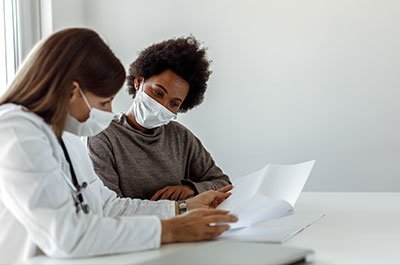When people think of aneurysms, they often associate them with a horrible headache that can lead to certain sudden death. These are intracranial or brain aneurysms.
But aneurysms that expand areas of blood vessels can occur in other part of the body as well. One of the most common types of aneurysms are found in the abdomen, called an abdominal aortic aneurysm (AAA). If left unmanaged, the internal bleeding caused by its rupture can be lethal.
What are Abdominal Aortic Aneurysms?
Aneurysms develop when the wall of blood vessels in major arteries become damaged or weakened. Over time, this can develop into a bulge or dilated segment in the vessel – creating the aneurysm.
Abdominal aortic aneurysms develop in the abdominal aorta, a large artery in the abdomen that carries blood from the heart to other parts of your body. If you are male, smoke or have a history of aneurysms in your family, you may be at a higher risk of developing an AAA. Women can also develop an AAA, especially if they smoke. Rupture of this aneurysm causes internal bleeding and is highly lethal, so it is important to take steps to improve your condition prior to rupture.
"Many people can develop an aneurysm over years but have no idea they have one until it is discovered through some sort of screening process or, unfortunately, when it ruptures," says Timothy J. Nypaver, M.D., a vascular surgeon at Henry Ford Health. "When an aneurysm ruptures, you must be aware of the symptoms and act fact to avoid internal bleeding and death."
Symptoms of a ruptured abdominal aortic aneurysm include:

Vascular Care At Henry Ford
- Loss of consciousness
- Abdominal pain
- Back pain
- Lightheadedness or dizziness
If you have an abdominal aortic aneurysm, be proactive about your health by:
- Going to regular checkups to monitor AAA size and growth or other related health conditions
- Stop smoking (Smoking weakens the walls of your blood vessels, putting you at greater risk for developing an aneurysm or having an aneurysm rupture.)
- Live a healthy lifestyle by eating right and staying active
- Talk to your doctor about your options for a minimally-invasive method of repair
Operating On Abdominal Aortic Aneurysms
To operate on aneurysms, surgeons use a minimally-invasive procedure called endovascular aneurysm repair (EVAR). In this operation, doctors access the femoral arteries through the groin and insert a special device called an endograft. This device is compressed within a larger catheter that is inserted into the blood vessel and then navigated to the area of the aneurysm. Once in position, the graft is deployed, eliminating pressure on the aneurysm. Without the pressure on the aneurysm wall, the aneurysm will shrink and no longer have the risk of rupturing. If the aneurysm has already ruptured, this procedure, if performed immediately, can stop the bleeding by sealing the area of rupture, thereby preventing blood loss through the ruptured aneurysm. The procedures also allows blood to continue to flow through the endograft device, supplying necessary circulation to the pelvis and legs.
The Importance of Aneurysm Screenings
According to Dr. Nypaver, the best way to prevent a ruptured aneurysm is to have a screening performed around the age of 65. “Abdominal aortic aneurysms are the fifteenth leading cause of death in men,” he says. “There really is no way of knowing you have an aneurysm without getting a screening test.”
The screening for AAA is a simple ultrasound that checks the width of the abdominal aorta. According to Dr. Nypaver, the aneurysm's size is the most important factor that increase the risk of rupture.
"Typically, the abdominal aorta is about 2.0-2.5 centimeters wide," says Dr. Nypaver. "It is considered an aneurysm when it reaches 3 centimeters, and if it gets up to 5 centimeters, we may consider an operation to prevent rupture."
While these aneurysms are more common in men and those who smoke, you should also consider getting an aneurysm screening if you have:
- High blood pressure
- Diabetes
- Heart disease or coronary artery disease
- A family history of aneurysms
If you think someone may be experiencing a ruptured aneurysm, call 911. When an abdominal aortic aneurysm ruptures, it is typically characterized by:
- Sharp, intense abdominal or back pain
- Nausea and vomiting
- Shock and confusion
“If it has ruptured, there is a very high mortality rate as many patients will not make it to the hospital in time,” says Dr. Nypaver. “That is why regular screenings and elective repair are so important.”
Talk to your primary care doctor to see if you should get an aneurysm screening, or about any other health screenings that may be recommended for your age, sex, health status and other risk factors.
Reviewed by Dr. Timothy J. Nypaver, a vascular surgeon and Head of Vascular Surgery for Henry Ford Hospital.



